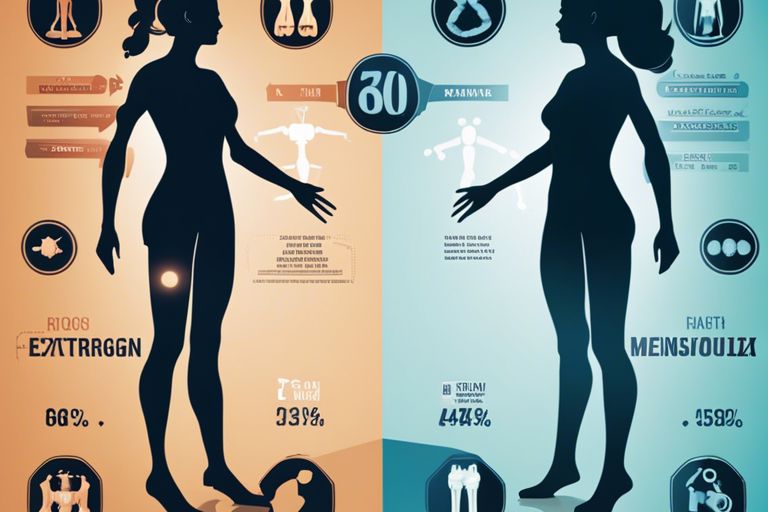Menopause, a natural part of the ageing process for women, can bring about a variety of physical and emotional changes due to hormonal shifts. While much attention is often given to the physical symptoms experienced during menopause, such as hot flushes and night sweats, the impact on mental health is equally significant but often overlooked. The fluctuation in hormones, particularly oestrogen, can lead to mood swings, irritability, anxiety, and even depression. Understanding the connection between menopause and mental health is crucial in order to provide adequate support and resources for women going through this phase of life.
Key Takeaways:
- Menopause can significantly impact mental health: The hormonal changes during menopause can lead to mood swings, anxiety, irritability, and depression.
- Increased risk of mental health disorders: Women going through menopause are at a higher risk of developing conditions such as anxiety disorders and depression.
- Importance of seeking support: It is crucial for women experiencing menopausal symptoms to seek help from healthcare professionals, as appropriate support and treatment can significantly improve mental well-being.
- Healthy lifestyle practices can help: Regular exercise, a balanced diet, sufficient sleep, and stress management can all contribute to promoting better mental health during menopause.
- Stigma and misconceptions surrounding menopause: Addressing societal stigmas and misconceptions about menopause can help create a supportive environment for women to openly discuss their mental health struggles during this stage of life.
Understanding Menopause
Definition and Biological Processes
Menopause is a natural biological process that marks the end of a woman’s reproductive years. It typically occurs in her late 40s to early 50s, when the ovaries stop producing eggs and her menstrual cycles cease. This hormonal shift results in various physical and emotional changes, impacting a woman’s overall well-being.
Common Symptoms Associated with Menopause
Common symptoms experienced during menopause include hot flushes, night sweats, mood swings, and sleep disturbances. These symptoms are a result of the fluctuating levels of hormones, particularly oestrogen, in the body. While some women may navigate through menopause with mild symptoms, others may find them significantly distressing and disruptive to their daily lives.
Menopause and Mental Health
Psychological Impact of Menopause
The menopausal transition can have a significant psychological impact on women. Symptoms such as hot flushes, night sweats, and sleep disturbances can disrupt daily life and lead to increased stress, irritability, and anxiety. Many women also report feelings of sadness and loss during this time, which can contribute to the development of depression.
Hormonal Changes and Mental Health
Hormonal changes during menopause, specifically the decline in oestrogen levels, can have a direct impact on mental health. Oestrogen plays a crucial role in regulating neurotransmitters that affect mood, such as serotonin and dopamine. As these levels fluctuate, women may experience mood swings, irritability, and increased susceptibility to anxiety and depression.
It is important for women going through menopause to seek support from healthcare professionals to address any mental health concerns that may arise. Therapeutic interventions, lifestyle modifications, and sometimes hormone replacement therapy can help alleviate symptoms and improve overall well-being during this transitional phase.
Managing Menopausal Mental Health
Therapeutic Interventions
Therapeutic interventions such as cognitive behavioural therapy (CBT) and mindfulness-based stress reduction can be effective in managing menopausal mental health symptoms. CBT helps individuals identify and challenge negative thought patterns, while mindfulness techniques promote relaxation and emotional well-being.
Lifestyle Adjustments and Support Systems
Adopting healthy lifestyle habits such as regular exercise, balanced nutrition, and sufficient sleep can positively impact menopausal mental health. Establishing strong support systems with friends, family, or mental health professionals provides a crucial network for individuals to share their experiences and seek guidance during this transitional phase.
In addition to lifestyle adjustments, engaging in activities that promote relaxation and stress relief, such as yoga or meditation, can also contribute to improved mental well-being. It is imperative for individuals experiencing menopausal symptoms to prioritise self-care and seek out the necessary support to navigate this challenging period with resilience and positivity.
Future Directions and Research
Ongoing Studies and Potential Treatments
Several ongoing studies are focusing on exploring the potential treatments for managing the impact of menopause on mental health. These studies are investigating various hormone replacement therapies, non-hormonal medications, and lifestyle interventions that can help alleviate symptoms such as mood swings, anxiety, and depression. The goal is to find safe and effective treatments that can improve the mental well-being of women going through menopause.
The Role of Public Health Policy
Public health policies play a crucial role in addressing the mental health challenges faced by menopausal women. By implementing policies that promote awareness, education, and access to mental health support services, governments can help reduce the stigma associated with menopause and mental health. It is important for policymakers to consider the specific needs of menopausal women and tailor public health initiatives to provide adequate support and resources for this vulnerable group.
The Impact of Menopause on Mental Health
Menopause can have a significant impact on mental health due to hormonal changes affecting neurotransmitters in the brain. Symptoms like mood swings, anxiety, and depression are common during this stage. It’s crucial for women and healthcare providers to be aware of these potential effects and address them promptly. Seeking support from loved ones, implementing self-care practices, and consulting healthcare professionals for appropriate treatment can help manage mental health challenges during menopause. Understanding the connection between menopause and mental health is important in ensuring women navigate this natural stage of life with resilience and well-being.
FAQ
Q: What is menopause?
A: Menopause is a natural biological process that marks the end of a woman’s menstrual cycles. It typically occurs in women in their late 40s to early 50s.
Q: How does menopause impact mental health?
A: Menopause can have a significant impact on mental health, causing symptoms such as mood swings, anxiety, depression, and irritability.
Q: What are some strategies to manage mental health during menopause?
A: Strategies to manage mental health during menopause include regular exercise, maintaining a healthy diet, getting enough sleep, practising relaxation techniques, and seeking support from healthcare professionals.
Q: Can hormone replacement therapy help with mental health symptoms during menopause?
A: Hormone replacement therapy (HRT) may help alleviate some of the mental health symptoms associated with menopause, but it is important to discuss the risks and benefits with a healthcare provider.
Q: Are there any long-term effects of menopause on mental health?
A: While some women may experience ongoing mental health challenges post-menopause, many find that symptoms improve over time with appropriate management strategies and support.





